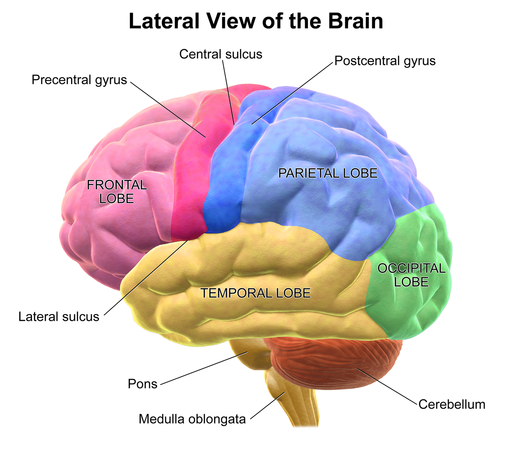Written by Sofia Amirbayat
Edited by Rowena Fletcher-Wood
The brain is a complex organ that has a natural ability to adapt and change with time; it is made of about 100 billion neurons, able to connect to each other in networks and pathways. What makes these networks is our lived experiences with the world and people. When a baby is born, the brain has specialised areas for sensory perception, but doesn't have many learned pathways yet and is very open to learning and forming networks.
There are several interesting parts of the brain, but perhaps the most interesting is the prefrontal cortex. The prefrontal cortex is involved in higher cognition, planning, decision making, personality and social behaviours. There is one category of cognition that is often associated with the prefrontal cortex: executive functions – a group of complex mental processes and cognitive abilities such as working memory, impulse inhibition, and reasoning.
Patients with prefrontal cortex damage can experience blunted emotional responses, which may negatively affect their ability to make decisions. This can lead to them failing to see the consequences of their actions (what we call “thinking ahead”).
Edited by Rowena Fletcher-Wood
The brain is a complex organ that has a natural ability to adapt and change with time; it is made of about 100 billion neurons, able to connect to each other in networks and pathways. What makes these networks is our lived experiences with the world and people. When a baby is born, the brain has specialised areas for sensory perception, but doesn't have many learned pathways yet and is very open to learning and forming networks.
 |
| Lateral View of the Brain by BruceBlaus [CC BY 3.0], via Wikimedia Commons. |
There are several interesting parts of the brain, but perhaps the most interesting is the prefrontal cortex. The prefrontal cortex is involved in higher cognition, planning, decision making, personality and social behaviours. There is one category of cognition that is often associated with the prefrontal cortex: executive functions – a group of complex mental processes and cognitive abilities such as working memory, impulse inhibition, and reasoning.
Patients with prefrontal cortex damage can experience blunted emotional responses, which may negatively affect their ability to make decisions. This can lead to them failing to see the consequences of their actions (what we call “thinking ahead”).


